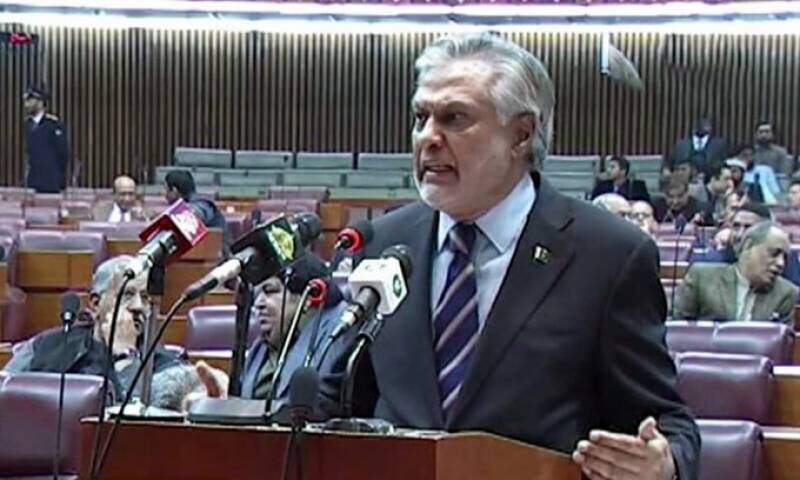Islamabad (Web Desk): Finance Minister Ishaq Dar introduced the "Finance (Supplementary) Bill, 2023" in the National Assembly (NA) and Senate on Wednesday proposing additional taxes and duties of Rs170 billion to meet the conditions set by the International Monetary Fund (IMF) for revival of stalled loan programme.
Sharing main points of the supplementary finance bill in the NA, the finance minister said that an effort has been made not to impose additional taxes on daily-used items.
"It is suggested to increase General Sales Tax (GST) from 17% to 18%, the minister said, adding that It has been decided GST on luxury items has been enhanced from 17% to 25%.
For air travel, Dar informed the house those travelling through First and Business Class will have to pay Federal Excise Duty of 20% percent of the airfare or Rs50,000 or whichever is higher.
He said that 10% withholding adjustable advance tax will be levied on the bills of wedding halls in order to promote simplicity and austerity.
The finance minister said that Federal Excise Duty is being enhanced on cigarettes and sugary drinks, while it is proposed to increase Federal Excise Duty on Cement from 1.5 rupees to two rupees per kilogrammes.
Ishaq Dar said that the government has decided to enhance the monthly cash assistance for Benazir Income Support Programme (BISP) beneficiaries and for this purpose, the BISP budget is being enhanced from Rs360 billion to Rs400.
He said the additional revenue measures, announced today, have nothing to do with the fiscal performance of the government.
Referring to the longstanding issue of circular debt in the power sector, the finance minister said that it was increased from Rs1,148 billion to Rs20,467 billion in a span of four years during the tenure of Pakistan Tehreek-e-Insaf (PTI) government.
He said the circular debt was estimated to increase by Rs855 billion this year, but as a result of incumbent government's reforms measures, it will be brought down to Rs336 billion.
Emphasizing the need for energy reforms, he said the country cannot afford Rs1400 billion losses in the power sector per annum.
The finance minister said that the government has also envisaged structural reforms to bring improvement in the economy.
He said the economy is expected to grow by 4% next year.
"The government is also pursuing a programme to bring down fiscal and current account deficits," Dar added.
He pointed out that the State Bank of Pakistan (SBP) has issued a priority list for the import of food items, pharmaceuticals and raw material for the export industry.


